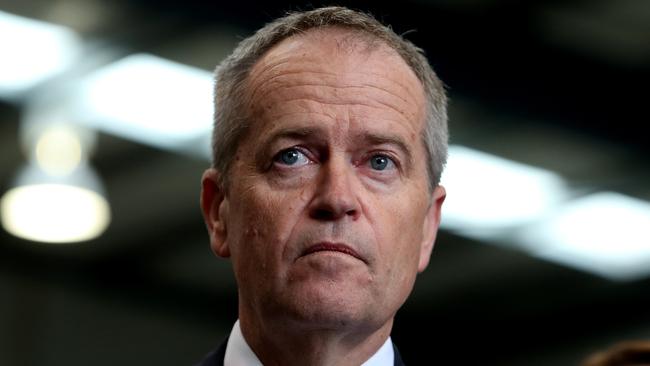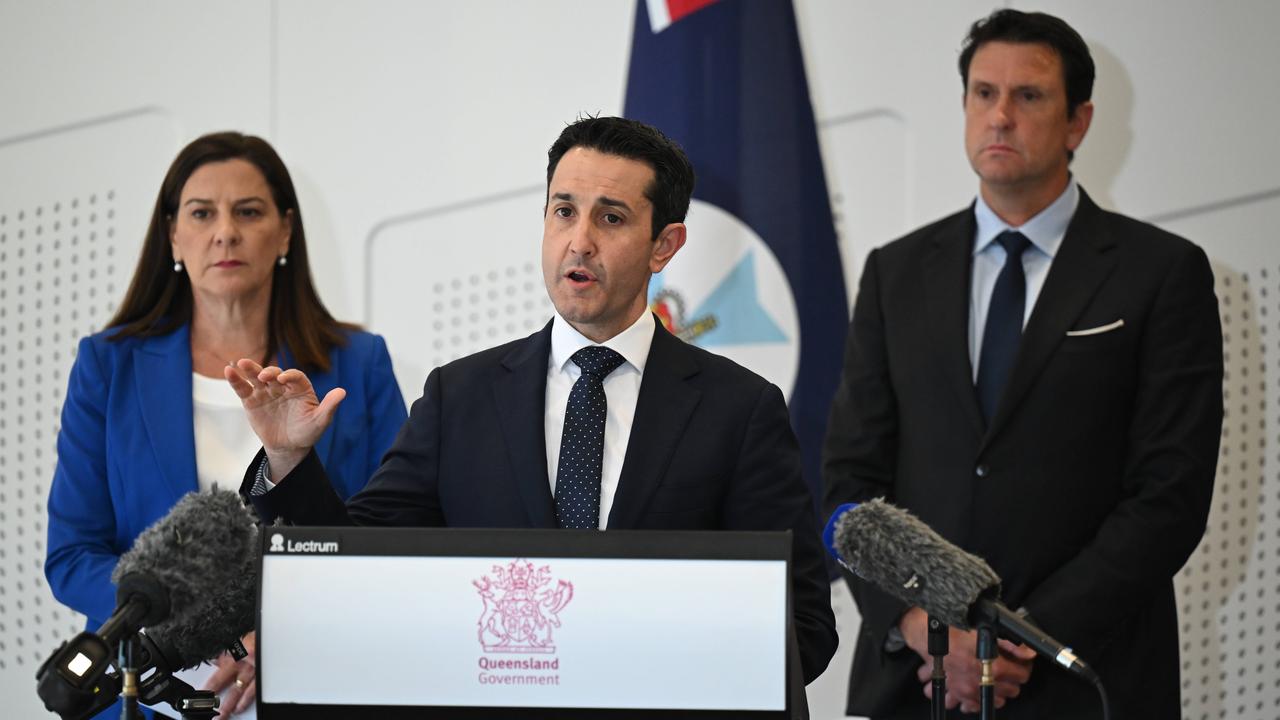ALP review: Shorten’s stumble on climate costs let Coalition in
Bill Shorten’s ‘stumble’ on the cost of Labor’s climate change policies allowed the Coalition to escalate its attack on him.

Bill Shorten’s “stumble” in refusing to answer questions about the cost of Labor’s climate change policies allowed the Coalition to escalate its “Shifty Shorten” attack and helped drive away support in the first week of the campaign.
Labor’s campaign review identified Mr Shorten’s clash with former Ten Network reporter Jonathan Lea as part of the failure to sell the party’s climate change policies, particularly in the resource-rich states of Queensland and Western Australia.
The review also identified Labor’s 50 per cent electric cars target as being exploited by Scott Morrison, who used it to win the votes of tradies and blue-collared workers. “This campaign sought to convince young men, especially tradies, they would be required to give up their utes and four-wheel drives, when no such policy existed,’’ the review said.
“It was an early indication of the Coalition’s plan to target economically insecure, low-income voters with negative messages about Labor. The Coalition’s attack then moved to assert Labor’s climate change policy was not costed. Labor’s inability to respond effectively played into the Coalition’s characterisation of Labor as a risk.”
The document, released on Thursday by review co-chairmen Jay Weatherill and Craig Emerson, slammed Mr Shorten’s ambiguity over the Adani coalmine, saying it cost the party votes in coal regions.
“It sent a message to voters in parts of regional Queensland and in the Hunter Valley that Labor did not value them or the work they do,” the review said.
“This problem was magnified by the Stop Adani Convoy. A perception that Labor was not supportive of the mining industry may have also hurt the party across the rest of Queensland.
“Labor should recognise coalmining will be an Australian industry into the foreseeable future and develop regional jobs plans based on the competitive strengths of different regions.”
But Mr Weatherill and Dr Emerson urged Labor to retain ambitious climate change policies. “The Labor Party must continue to stand for strong action on climate change,’’ Mr Weatherill said after handing the report to Labor’s national executive. “We believe that this is a bedrock principle for the Labor Party and cannot be abandoned. Precisely what the policy should be is … a matter for the federal Labor Party.”
Dr Emerson said the climate change issue cost Labor support in Western Australia and Queensland, and warned against Labor becoming a “city-centric party”.
“The Queensland economy is effectively, to some extent at least, dependent on the mining industry, most particularly the coalmining industry,” Dr Emerson said.
“We need to win seats in Western Australia, we need to win seats in Queensland, we need to win seats in regional Australia. Labor can’t just be a city-centric party.”
The review said Labor should switch its focus to the jobs that renewable energy projects can create, while also increasing awareness on the costs of climate change inaction
“Labor should focus on renewable energy and the jobs it creates, link its renewable energy policies to lower electricity prices and emphasise the important role government should play in assuring this essential service,” the report said. “Labor needs to increase public awareness of the costs of inaction on climate change if it is to successfully advance its climate change policies.’’




To join the conversation, please log in. Don't have an account? Register
Join the conversation, you are commenting as Logout